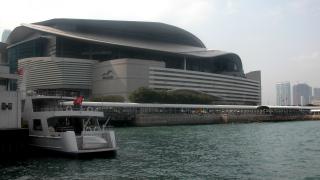Japanese consumers cut back on their spending at department stores in April after a shopping spree lasting several months ahead of the introduction of a sales tax increase.
However, the size of the decline suggests that the tax hike won't cause the level of widespread damage to consumption that was widely projected.
Nationwide department store sales dropped 12 percent from a year earlier in April, the Japan Department Stores Association (JDSA) said Tuesday. The figure marked the first decline in six months and came after sales surged 25 percent in March, according to a report by Reuters.
Households reduced spending following the sales tax rate rising to 8 percent from 5 percent on April 1, after months of hurried purchases of such big-ticket items as new cars and homes.
The JDSA cited weaker demand for clothing, furniture and home electronics last month.
The size of the decline is almost the same as in April 1997, the month in which the last sales tax increase took effect, ushering in years of low growth and deflation, according to the report.
However, this time, economists say, Japan's economic situation is in much better shape.
The magnitude of last month's pullback in demand at department stores has so far been "within expectations," said Yoshimasa Maruyama, a senior economist at Itochu Economic Research Institute.
While department stores account for only around 5 percent of total retail sales in Japan, economists say that the country may have headed off a much-feared economic backlash from the tax increase thanks to the recent economic improvement and the implementation of far more aggressive stimulus measures than in 1996-1997.
They say that it may take time before consumption bounces back but that an improving job market and moderate wage increases will likely encourage consumers to keep spending at a pace that won't damage the economic recovery.



